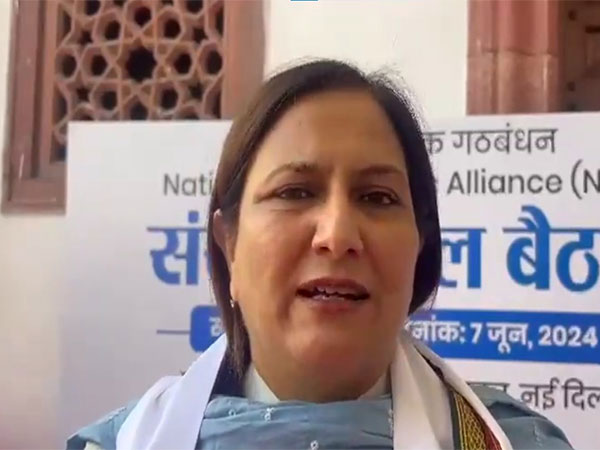New Delhi [India]: BJP MP Kamaljeet Sehrawat has strongly criticized AIMIM chief Asaduddin Owaisi over his comments on the Waqf (Amendment) Bill 2024, asserting that the Union government is introducing a “transparent” bill that ensures inclusivity and open discussion.
Speaking to media, Sehrawat said, “The Muslim community itself will not forgive Owaisi when his truth will be revealed… The Indian government is bringing a transparent Bill that will allow everyone to express their views…”
She further emphasized that the bill serves the nation’s interests rather than any individual agenda. “This Bill is not in the interest of any individual but in the country, and it should be passed,” she added.
AIMIM chief Asaduddin Owaisi has strongly opposed the proposed amendments, arguing that the BJP lacks a majority in the Lok Sabha and that the bill may not pass if leaders like Chandrababu Naidu and Nitish Kumar oppose it.
While speaking to ANI, Owaisi accused Prime Minister Narendra Modi of relying on political allies to push the bill forward. He also claimed that Union Home Minister Amit Shah is misleading the public regarding its implications.
“Amit Shah is the Home Minister of the Government of India and his statement is proof of the fact that you are trying to make an unconstitutional law which can be challenged in the court. This is a violation of the articles of the Constitution and the Waqf of the entire country will suffer because of it. You are removing the section of the Waqf property—who will benefit from it? You are omitting the revenue of lakhs of rupees. Amit Shah is lying to the country that you can challenge the Waqf Tribunal in the court. Prime Minister Narendra Modi relies on the crutches of Nitish Kumar and Chandrababu Naidu and if they do not support this unconstitutional bill, then this law will not be made,” Owaisi stated.
On Friday, Owaisi also took part in a ‘black band’ protest against the Waqf (Amendment) Bill. As a member of the Joint Parliamentary Committee (JPC) on the bill, he wore a black armband while offering prayers as a symbolic act of opposition.
The Waqf Act of 1995 was introduced to regulate Waqf properties, but it has faced criticism over issues such as mismanagement, corruption, and encroachment. The Waqf (Amendment) Bill 2024 seeks to address these concerns through reforms, including digitization, stricter audits, improved transparency, and legal measures to reclaim illegally occupied properties.


